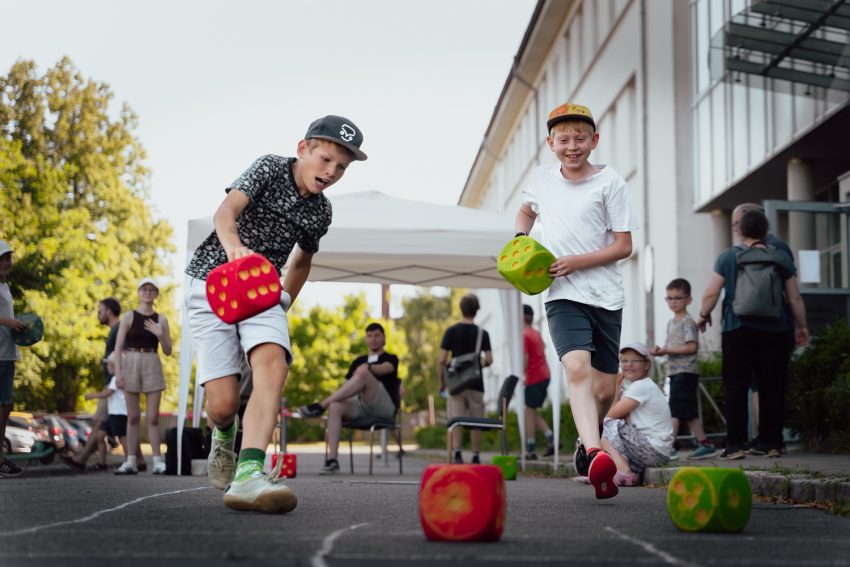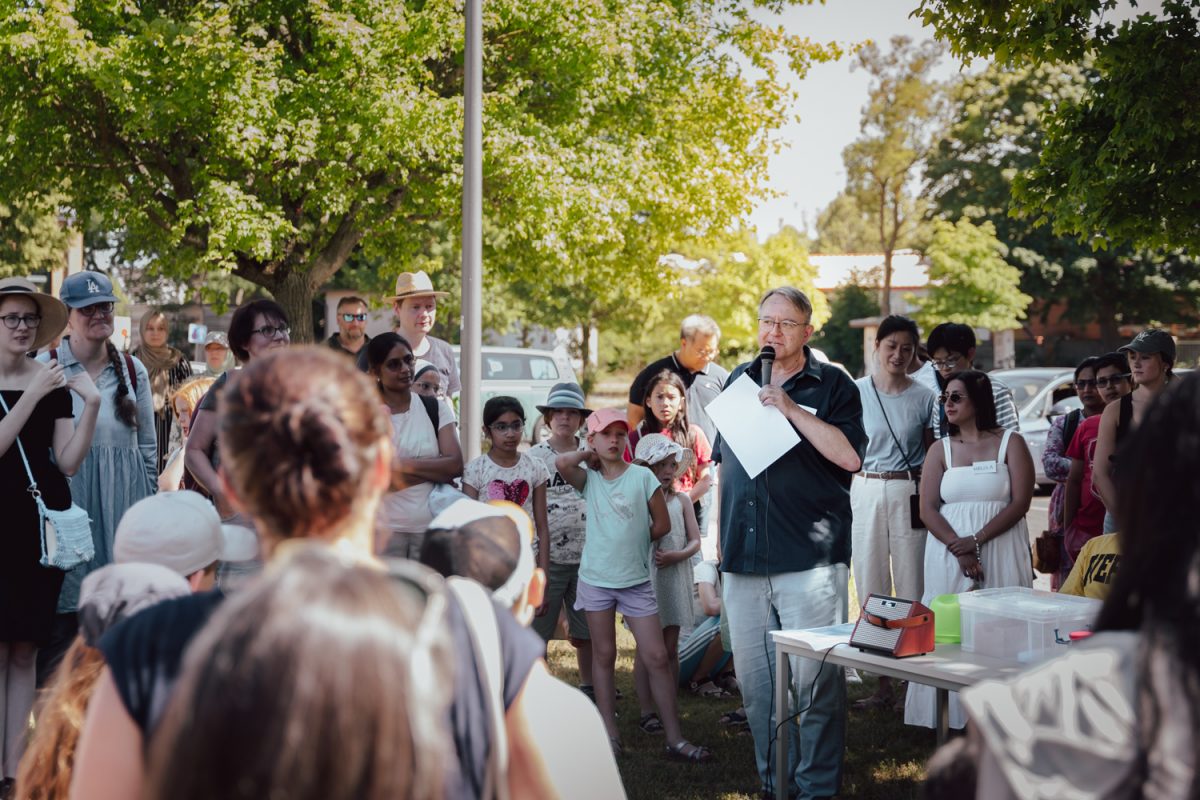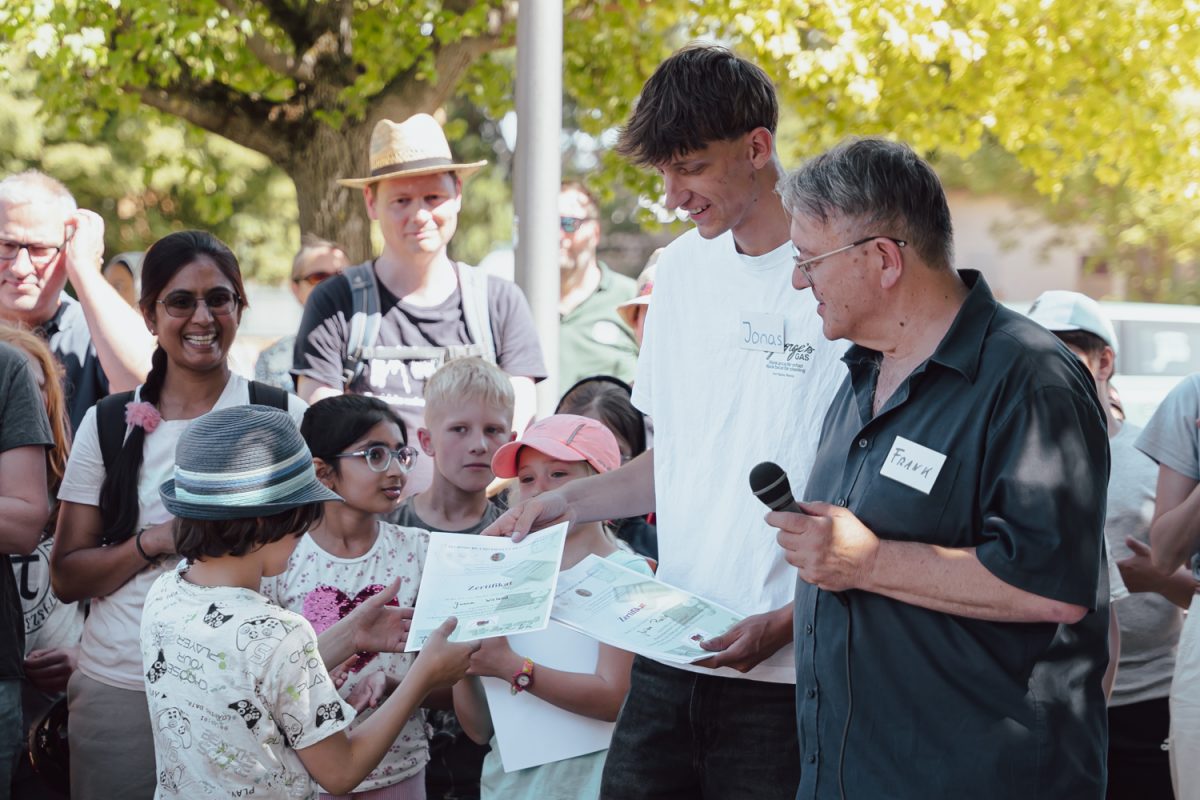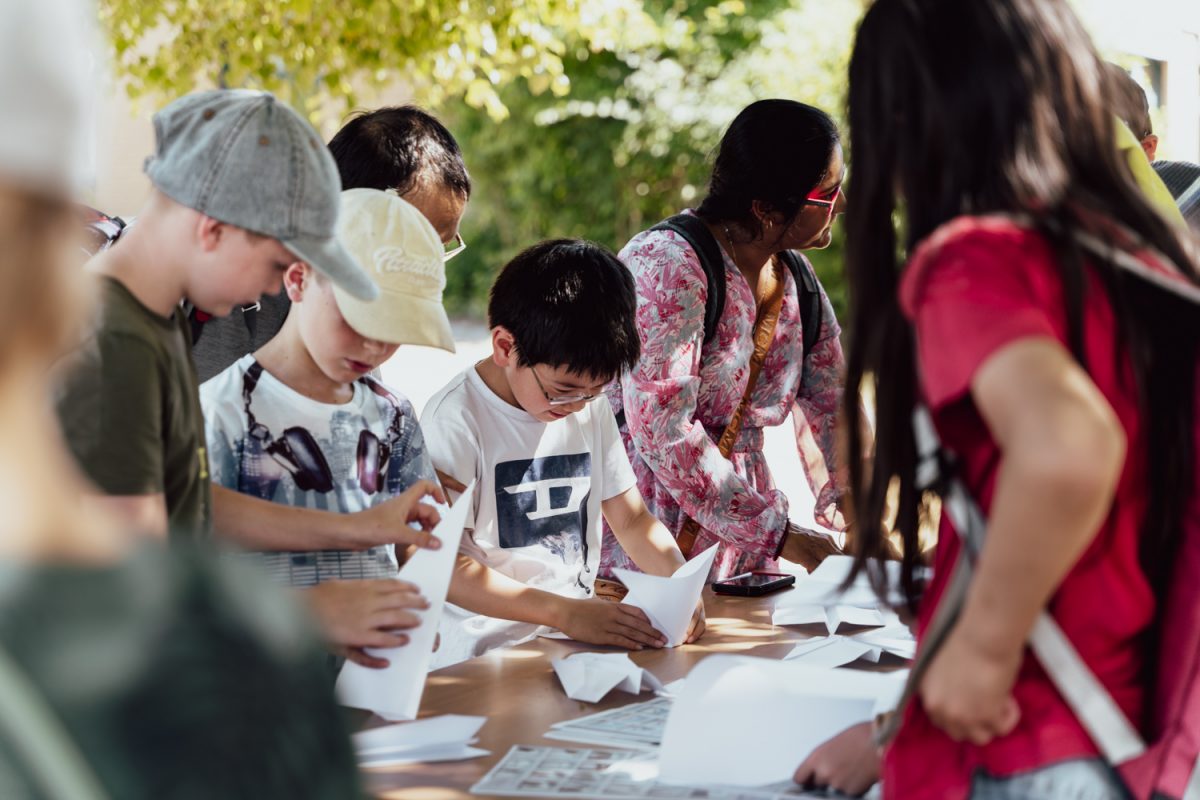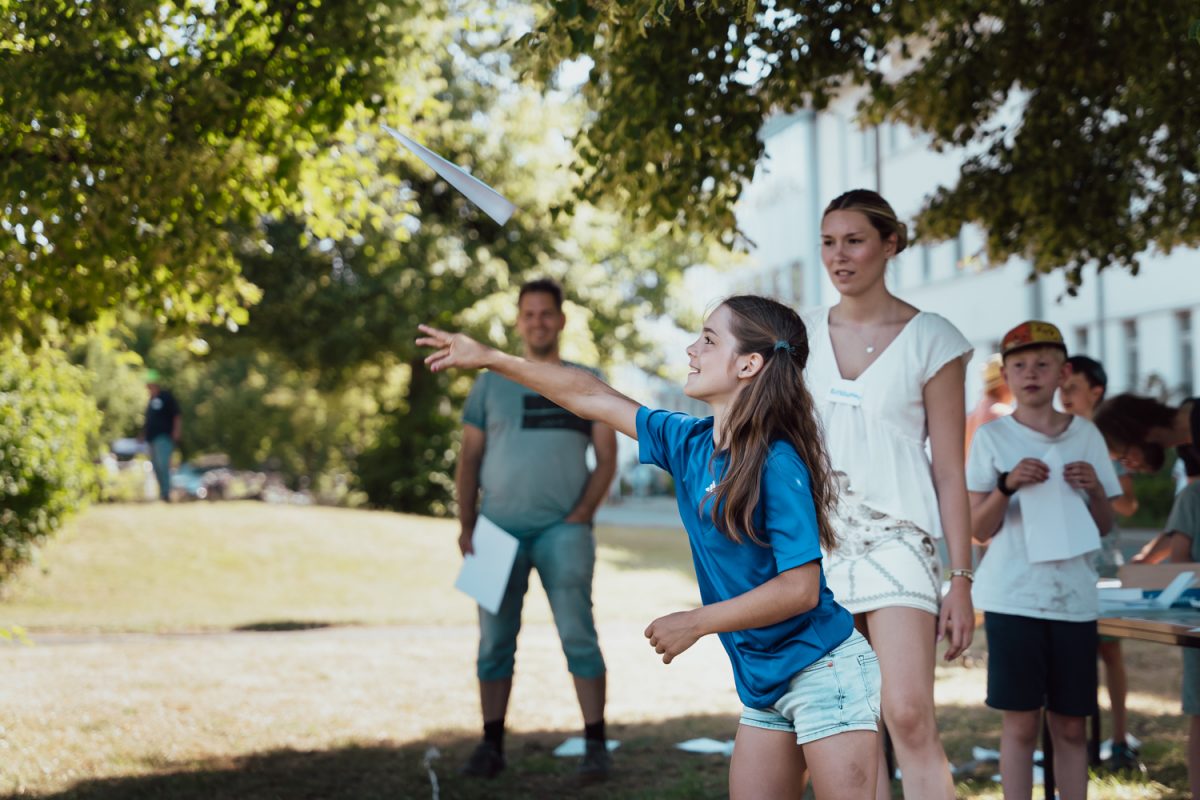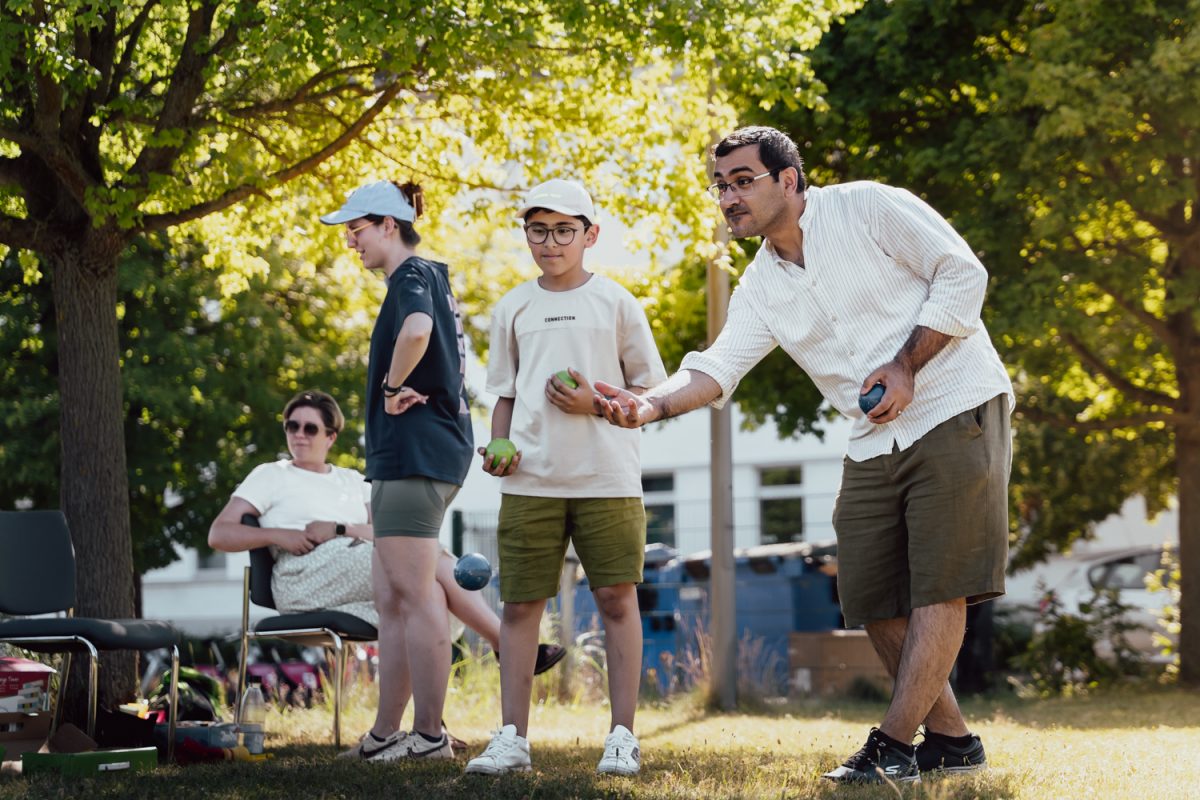A place that brings maths to life The Mathematical Learning Workshop celebrates its 25th anniversary
Calculating, puzzling, tinkering: for 25 years, the Mathematical Learning Workshop at Technische Universität Braunschweig has been inspiring children and young people to take an interest in maths. What began as a pilot project has long since become an integral part of the regional educational landscape. To celebrate this milestone, the workshop held its annual closing event on 1 July amidst beautiful summer weather, with a larger turnout at the North Campus, including pupils from grades 3 to 8 and their families.
As always at the end of the school year, the presentation of certificates to the participants of the workshop was a highlight of the anniversary celebrations. The programme also included maths trails across the grounds – a kind of mathematical scavenger hunt – as well as tricky estimation and brainteaser tasks. There was also a paper aeroplane throwing competition, the popular “polar bear diploma”, and a maths cinema showing exciting films. And, of course, everyone enjoyed ice cream together.
“Mathematics is a subject that polarises like no other. For some, it is an obstacle, for others a fascinating tool for understanding the world. But one thing is certain: mathematics is a key competence for mastering the challenges of our time,” says Frank Förster, head of the Mathematical Learning Workshop. “And it also plays an indispensable role in our personal lives, more than most students realise.”
Regardless whether you are weak or particularly gifted at maths
With ‘Matr:iks’, the mathematics teaching and learning laboratory which includes the Mathematical Learning Workshop, TU Braunschweig offers personalised mathematics programmes for children of all ages and abilities. The team of experienced mathematics educators and student teachers develops tailor-made formats that bring mathematics to life, whether for children with poor numeracy skills, particularly gifted young people or entire school classes.
“We want to foster a positive attitude towards mathematics in pupils and enable them to experience it in a variety of contexts. The focus is on independent work, so that mathematics can be used as a tool in the future,” says Professor Katrin Vorhölter, who initiated the further development of the learning workshop into “Matr:iks”.
The highlight of the anniversary celebrations will take place in autumn. On 22 November, the Mathematical Learning Workshop is inviting guests to a festive colloquium.

